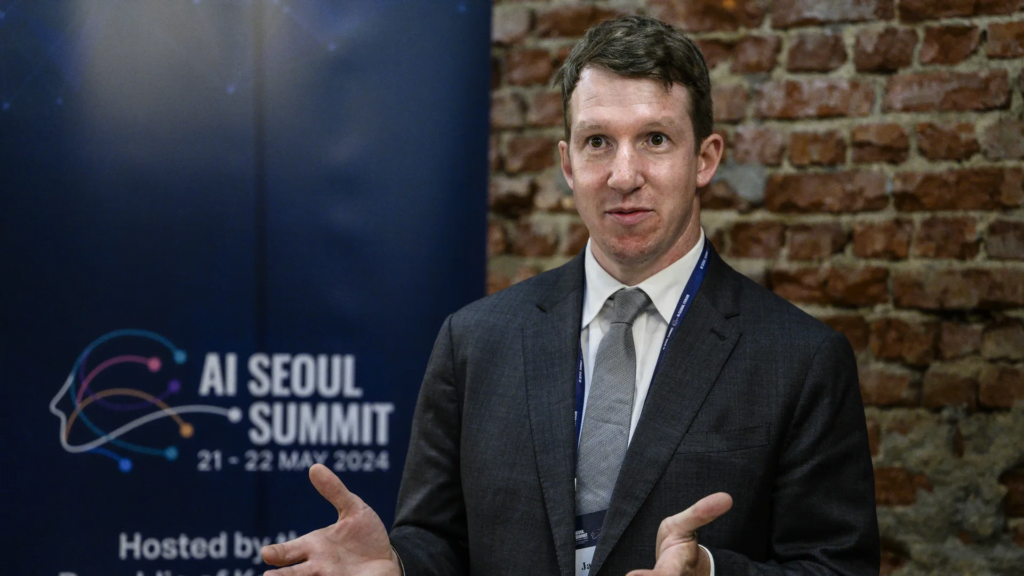U.S. Government Partners with OpenAI Leaders and Anthropic to Advance AI Safety and Evaluation
GAITHERSBURG, Md., Aug. 29, 2024 — In a landmark development aimed at bolstering AI safety, the U.S. government has announced innovative agreements with leading artificial intelligence startups OpenAI and Anthropic. These pivotal agreements grant the U.S. Artificial Intelligence Safety Institute, a division of the Commerce Department’s National Institute of Standards and Technology (NIST), early access to significant new AI models from both firms. Characterized as “first-of-their-kind” partnerships, these accords are set to enable the Institute to perform thorough evaluations and engage in collaborative research on risk mitigation both before and after these models are publicly launched.

Elizabeth Kelly, the director of the U.S. AI Safety Institute, underscored the importance of these agreements by stating: “Safety is essential to fueling breakthrough technological innovation. These agreements are just the start, but they are an important milestone as we work to help responsibly steward the future of AI.” This collaboration represents a substantial evolution in the interaction between government entities and industry players, focusing on ensuring the safety, reliability, and ethical deployment of advanced AI technologies.
The scope of the AI Safety Institute’s role extends beyond U.S. borders, encompassing a partnership with the U.K. AI Safety Institute. This cross-Atlantic collaboration aims to refine safety protocols and develop standardized methodologies for testing AI systems. This international dimension builds on previous collaborative efforts, such as those between Anthropic and the U.K. AI Safety Institute, which recently assessed the Claude 3.5 Sonnet model. The goal is to create a cohesive approach to AI safety and evaluation that leverages expertise from both sides of the Atlantic.
These agreements come at a time of increasing global scrutiny and legislative action aimed at regulating AI and addressing its associated risks. The Biden administration has previously encouraged AI companies to adopt voluntary safety measures. To date, 16 companies, including OpenAI and Anthropic, have committed to these voluntary safety practices. However, the new agreements represent a more profound level of engagement, focusing on detailed model reviews and collaborative risk management.
Anthropic Co-founder – Jack Clark

The dedication of OpenAI and Anthropic to these agreements highlights the critical importance of implementing rigorous safety measures in the development of AI technologies. “Safe, trustworthy AI is crucial for the technology’s positive impact,” stated Jack Clark, co-founder and head of policy at Anthropic. “Our collaboration with the U.S. AI Safety Institute allows us to leverage their extensive expertise to rigorously test our models before they are widely deployed,” he added.
In parallel with these developments, California has enacted the Safe and Secure Innovation for Frontier Artificial Intelligence Models Act (SB 1047). This legislation mandates specific safety measures for AI models to address potential risks while attempting to strike a balance between innovation and regulation. The bill, which has faced criticism from some AI companies for potentially hindering smaller developers, is awaiting the signature of Governor Gavin Newsom. The debate surrounding this legislation reflects broader concerns about how to effectively regulate AI without stifling innovation.
Furthermore, Anthropic has made strides toward greater transparency by publicly releasing the system prompts for its Claude model. This move is intended to provide deeper insights into the functionality of the model and improve public understanding. It has been lauded as a significant step in AI ethics, though some industry experts caution that making such information public could introduce security vulnerabilities.

In another notable development, Google is exploring a major investment opportunity in Vietnam, considering the establishment of a large-scale data center near Ho Chi Minh City. This potential investment could significantly enhance Vietnam’s digital infrastructure and attract further foreign capital. It highlights the ongoing global competition in tech infrastructure and innovation, with major tech companies seeking to expand their presence in emerging markets.
Overall, these developments represent a critical moment in the evolution of AI safety and regulation. They reflect the complex interplay between innovation, government oversight, and international collaboration, underscoring the importance of a balanced approach to advancing AI technology while addressing safety and ethical considerations.
Related Links:
Kamala Harris Sees Explosive Record Enthusiasm in 2024 Race
Federal Reserve Aggressive Rate Cut as US Jobs Lag at 150K
3 Ways Nvidia Boosts U.S. Stocks Ahead of Its Earnings Report
3 Critical Factors Behind Crypto’s Plunge Before NVIDIA’s Earnings
Top Cryptos to Invest in for Massive 20,000x Returns by 2025
3 Key Steps, US Stock Markets Face Volatility Until Elections
Donald Trump Has 60% Chance of Winning if Election Were Today
